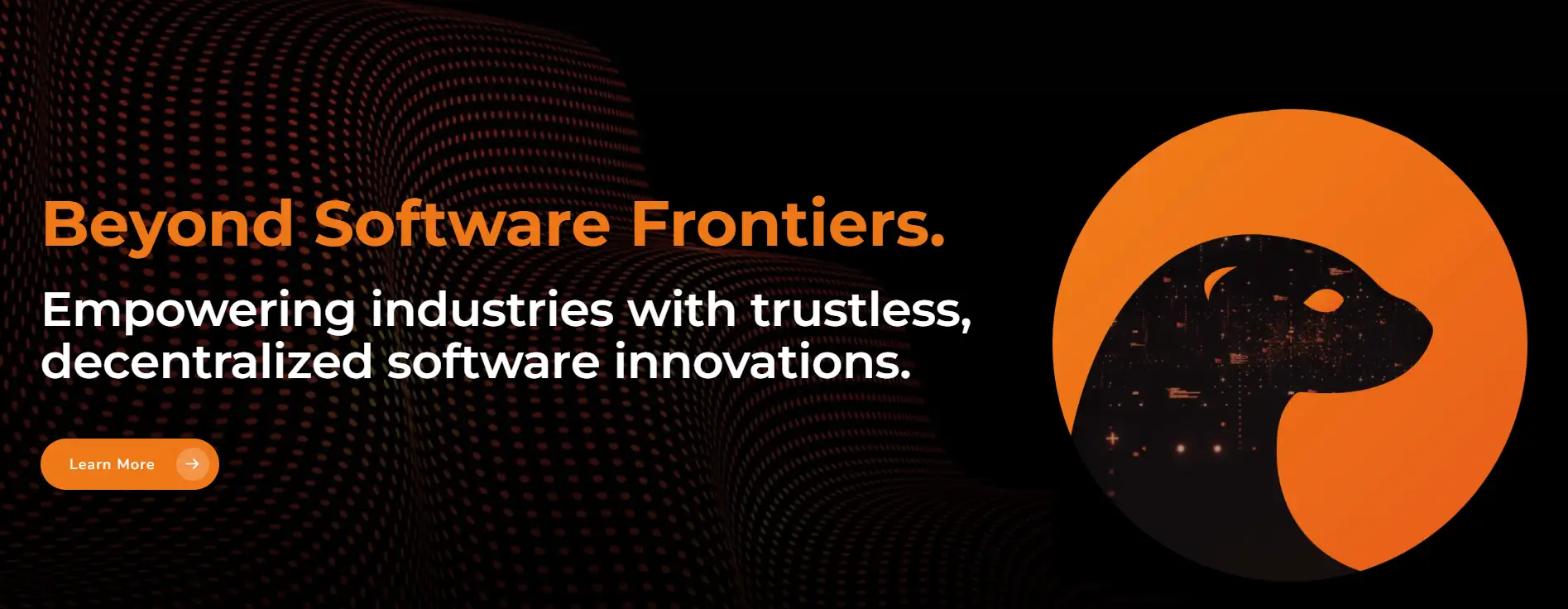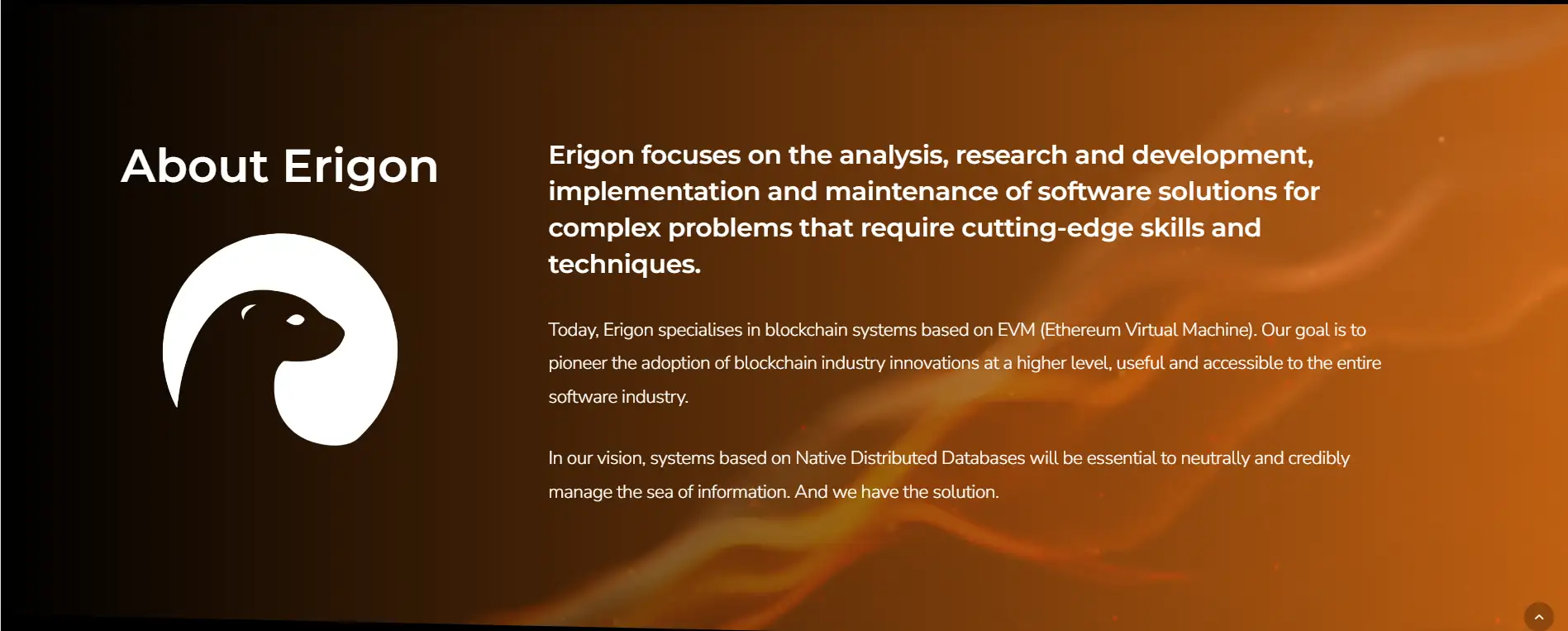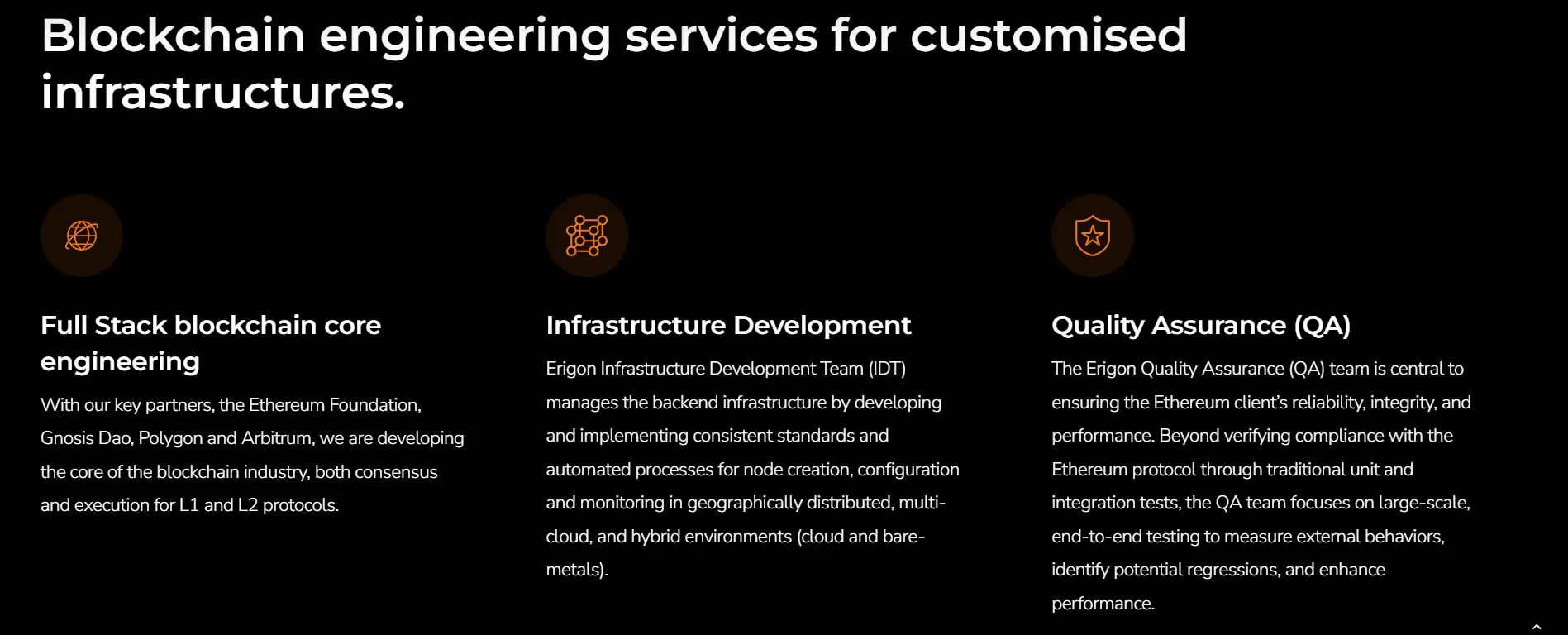About Erigon
Erigon is a modular, high-performance EVM client designed to push the boundaries of blockchain infrastructure. It was developed to solve Ethereum’s early scalability and performance bottlenecks and has since grown into a globally respected software project. The core of Erigon is built to support everything from archive nodes to full nodes and mining setups, offering top-tier efficiency in data syncing, storage optimization, and modularity.
Backed by years of research and in close partnership with the Ethereum Foundation, Polygon, Gnosis DAO, and Arbitrum, Erigon is not just a client—it’s a comprehensive engineering ecosystem. With the introduction of Erigon 3, the project now incorporates features like BitTorrent-based syncing, embedded consensus (Caplin), and transaction-level data granularity, making it one of the most advanced EVM stacks available.
The journey of Erigon began in 2017 with the vision of Alexey Akhunov to solve Ethereum's sync performance issues exposed during the CryptoKitties congestion event. Originally forked from Geth, Erigon was rewritten from the ground up and optimized for speed, disk efficiency, and modular extensibility. Its design allows it to operate efficiently in archive, full, or minimal modes and has been adopted widely by networks like Polygon, Ethereum, Gnosis Chain, and Arbitrum.
In 2024, Erigon 3 was released, marking a massive leap forward in Ethereum client design. It introduced BitTorrent-based state downloads, a flexible commitment engine, and transaction-level granularity. The project includes supporting tools like Silkworm RPC (a C++ JSON-RPC daemon for ultra-fast queries), Caplin (embedded consensus client), Otterscan (lightweight block explorer), and Erigon++ (a C++20-based execution layer). Erigon's architecture also integrates ErigonDB, its own native distributed ledger technology (nDLT), enabling high-efficiency multi-node sync using the Torrent protocol.
Erigon is known for its hands-on collaborations with the Ethereum Foundation, Polygon, Gnosis DAO, and Arbitrum. It is used in real-world production systems across consensus, execution, staking, and research layers. Competitors in the space include Geth, Besu, and Nethermind, but none offer the same modular composition or infrastructure-level depth.
Erigon provides numerous benefits and features that make it a standout solution in the Ethereum client ecosystem:
- Modular Architecture: Cleanly separates execution, consensus, RPC, and database layers for custom configuration and maximum flexibility.
- BitTorrent Sync: Lightning-fast node bootstrapping using snapshot-based state sync via the Torrent protocol.
- Caplin Client: Embedded consensus layer fully integrated with the Erigon execution client for seamless node deployment.
- Silkworm RPC: Ultra-fast C++-powered JSON-RPC API daemon optimized for high-throughput blockchain queries.
- Otterscan Explorer: Lightweight explorer leveraging internal Erigon APIs, eliminating the need for third-party indexing services.
- Cross-Network Support: Officially supports Ethereum, Gnosis, Polygon, Arbitrum, and their testnets.
- QA-Driven Development: Includes bare-metal testing, automated regression detection, and multi-chain end-to-end benchmarking.
- ErigonDB: Advanced native ledger system designed for performance, scalability, and future application in broader data systems.
Getting started with Erigon is simple for developers and infrastructure teams alike:
- Download the Client: Visit erigon.tech to get the latest release of the EVM client.
- Follow the Manual: Access full setup documentation at the Manual section for configuration details and usage tips.
- Select Deployment Mode: Choose from archive, full, or minimal node setup depending on your infrastructure needs.
- Run Caplin & Otterscan: Integrate consensus and explorer tools directly into your node using the Caplin and Otterscan modules.
- Use Silkworm RPC: For low-latency JSON-RPC integration, deploy the Silkworm daemon tailored to your environment.
- Contact for Support: Join Erigon’s community on Discord or reach out to [email protected] for enterprise needs.
Erigon FAQ
Erigon 3 is a milestone version that redefines Ethereum client architecture by combining high-performance data handling with flexible infrastructure design. It features BitTorrent-based state sync, embedded consensus through Caplin, and transaction-level granularity. Unlike earlier clients, it cleanly separates the database and execution logic, resulting in lower hardware demand and significantly faster sync times. Learn more at erigon.tech.
Erigon’s BitTorrent-based sync engine allows nodes to download pre-built state snapshots instead of replaying every transaction, which drastically cuts down the time and resources needed to bring a node online. This system is particularly useful for archive nodes and large networks like Polygon. It also improves decentralization by enabling fast distribution of verified state data across the network.
Yes. With the integration of Caplin, Erigon users can run both execution and consensus layers in a single, embedded architecture. Caplin is optimized for seamless coordination with the Erigon execution layer, simplifying deployment and reducing the need for external consensus clients. This provides better performance, modularity, and operational simplicity for node operators.
Silkworm RPC (also known as SilkRPC) is a standalone, high-performance JSON-RPC daemon written in C++20 and specifically optimized for low-latency access to EVM-compatible blockchains. It integrates deeply with the Erigon client and supports custom endpoints, making it more flexible and much faster than traditional RPC servers like Geth’s built-in JSON-RPC interface.
Otterscan is a full-featured block explorer that runs on top of Erigon. Unlike other explorers, it does not require additional indexers or third-party databases. Instead, it leverages Erigon’s internal APIs to directly extract chain data. It’s highly efficient, easy to deploy, and ideal for teams looking to run their own explorer infrastructure without added complexity.
You Might Also Like












